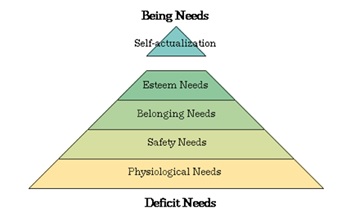Motivation is an important factor in the performance of an employee, especially in a challenging field like marketing. A marketing person will face rejections along with results. In fact, marketing experts are of the view that the success of a salesperson is dependent on the number of rejections faced. In direct marketing, success will depend on how many people you meet. The more people one meets, the more rejections he will face, along with more orders. The question as to whether a good paycheck alone is enough to motivate a person to do well have to be discussed in relation to the many motivation theories brought forth by many management thinkers.
There are content theories like Hierarchy-of-needs theory, Motivation-hygiene theory, and Acquired-needs theory, and process theories like Expectancy theory, Equity theory, and Attribution theory. An analysis of such theories will prove that though salary plays an important part in motivation, it is not enough, especially for a person who is a successful salesperson. The Hierarchy of needs theory essentially states that initially, a person is motivated by the lower level of needs (called physiological needs) like food, health, sleep, etc., but once these needs are satisfied, his level of perception changes. It then moves on to higher levels, starting from safety needs, the need for belonging, esteem needs, and finally, self-actualization.

The Motivation-hygiene theory of Herzberg states that all people have basic (hygiene) needs. If these needs are not met, dissatisfaction occurs. Meeting these needs only serves a person who is not dissatisfied. In other words, it does not make him satisfied. What gives satisfaction to a person according to our “achievement, recognition, work itself, responsibility and advancement.”
The acquired needs theory by McClelland classifies employees into three categories, and their needs change according to the category they belong to. The three categories are achievement, affiliation, and power. The first category seeks to achieve and excel in their field and needs appreciation and recognition. Affiliation-oriented employees look mainly for good relationships in the workplace, and power-oriented employees get satisfaction in having control over others. The Expectancy Theory by Victor Vroom states that a person is motivated by his perception of the expected benefit from doing work. “One of the assumptions of the Expectancy Theory is that people make decisions among alternative plans of behavior based on their perceptions [expectancies] of the degree to which a given behavior will lead to desired outcomes.”
On the other hand, the Equity Theory by Adams states that what motivates employees are the efforts to have equity with other employees. So, workers tend to see how other employees perform and try to achieve that level of performance. Attribution theory by Weiner states that employees are motivated by success and attribute this success to their efforts. When confronted by failure, they tend to blame circumstances over which they have no control.
From all these theories about motivation, it can be seen that a lot of other factors also contribute to the performance of a salesperson. So, it can be said with finality that just paying a high salary to a salesperson need not motivate him to perform better, especially in the long run.
